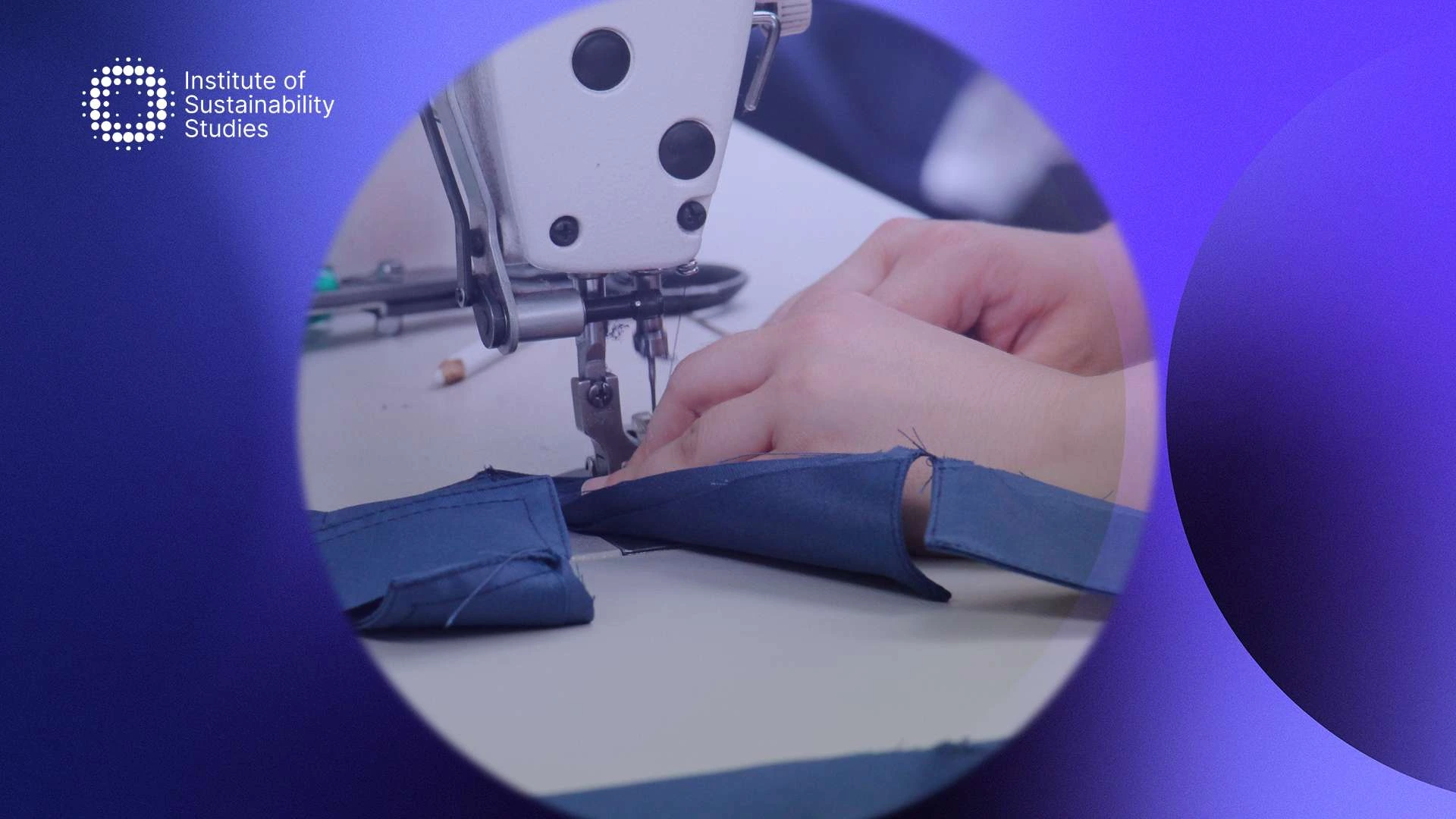Merriam-Webster defines innovation as “the introduction of something new.” The new refers to products and services, but also enhancements in business models or processes. Sustainable innovation, driven by concern for the planet and resources, integrates sustainability management into business practices.
It involves using products and concepts that were created as a result of environmentally aware practices and designs. Businesses that embed sustainability into their innovation processes have framed their discussions around returns and growth which has helped them to add measurable value for their stakeholders. Keep reading to learn about sustainable innovation and its importance to secure a prosperous future for all.
What is sustainable innovation?
Sustainable innovation consists of making intentional alterations to an organisation’s services, processes, and products to create long-term environmental and social benefits while ensuring economic profits for the business. This kind of innovation allows companies to invent and provide novel services or products that directly contribute to achieving global sustainability.
However, businesses can also innovate sustainably while providing existing services or products when they integrate sustainable product design into their processes. Process changes can happen in a multitude of areas, including production, design, marketing, and human resources.
How does sustainable innovation differ from traditional innovation?
Below are some of the key differences between sustainable innovation and traditional innovation.
Intentionally furthering the climate agenda
Sustainable innovation intentionally aims to further the climate agenda. It requires organisations to actively embed issues like climate change and human rights into their innovation processes. Businesses that engage in sustainable innovation go further than merely seeking profits. They think of growth in the long term and about investing in people and technology for the future.
Incorporation into the organisation’s culture
Sustainable innovations have to be incorporated into the organisation’s culture. By contrast, traditional innovations are often performed within a separate R&D unit or department. For sustainable innovations to be successful, they must be deeply incorporated into the enterprise’s culture. If sustainability is not part of the corporate culture, the venture of short-term profits will destroy environmental-oriented creative ideas without providing them sufficient time to mature.
Systems thinking and sustainable collaboration are critical
Sustainable innovations need systems thinking and sustainable collaboration. When businesses engage in sustainable innovation, they cannot simply focus on their own business. Rather, they must look more broadly at the entire system they are part of.
This includes other businesses, stakeholders and communities, and the natural environment. Ultimately, they have a quality understanding of exactly how their actions impact other businesses. One of our Sustainable Action Dialogues Series Webinars delved into the essential strategies for sustainable communication and stakeholder engagement, emphasising how these practices are vital for building trust and driving collection. Check out the webinar replay here.
The business case for innovation
Now that you know a bit more about sustainable innovation and how it differs from traditional innovation, you are probably wondering why a business should engage in sustainable innovation.
Attracting talent and building resilience
Eco-conscious businesses attract talented individuals and bring in better people. A Deloitte survey has uncovered personal ethics play a significant role in career choices, and many are suited to work with purpose-driven organisations. Additionally, businesses that care about the environment are generally more resilient compared to their competitors.
Long-term revenue and stability
Sustainability-oriented companies are more likely to survive and navigate crises, generate more revenue over the long run, and experience less share price volatility than those who do not focus on the environment. Sustainable innovation results in stronger business models, enhanced processes, newer market segments and so much more. It also responds to consumer demand for more sustainable products and services.
Enhanced innovation and impactful patents
Those businesses that do focus on sustainability also produce more impactful and meaningful patents. They think more broadly and learn from various perspectives. These businesses welcome solutions and insights from others. The result of this is even more and better innovation. It’s clear, sustainability is a game-changer for businesses and the world.
How can sustainable innovation help the world?
Below are some of the many ways that sustainable innovation can help the world, and advance sustainable development.
- Embedding environmental protection: Sustainable innovation integrates environmental protection into creating new products that meet long-term needs.
- Insufficiency of business as usual: Traditional business practices are inadequate for addressing current environmental challenges. Even large multinationals must innovate to survive and thrive.
- Need for new thinking: Organisations must adopt new strategies to deliver primary business plans while also creating socioeconomic and environmental benefits. This approach is essential for true sustainability.
- Role of innovation: Innovation is vital in the sustainability landscape. It differentiates leaders from followers.
- Traditional Business Case: Previously, sustainability focused on reputation, talent acquisition, cost savings, and resource efficiency.
- Opportunities in environmental challenges: Leading organisations recognise the opportunities within environmental challenges to reinvent services and products, achieving significant market benefits.
- Driving sustainability goals: Sustainable innovation helps achieve global sustainability goals. It pushes businesses to surpass the benefits of traditional approaches.
- Enhancing efficiency and materials: Sustainable innovation enhances energy efficiency and promotes the use of environmentally friendly materials.
- Meeting customer needs and changing behaviours: It allows businesses to meet customer demands and influence consumer behaviour towards sustainability.
- Engaging in the circular economy: Companies can participate in the circular economy, promoting resource reuse and waste reduction.
- Path to net zero: Sustainable innovation is crucial for businesses aiming to reach net zero emissions, contributing to a better future for all.
Developing a sustainability strategy
Now that you have a greater understanding of the important role sustainable innovation plays in fighting the climate emergency, let’s talk about how you can innovate sustainably. Below are some strategies and steps to help you get started.
Make sure you have achievable and clear goals and objectives
Sustainability has excellent potential to bring about business growth and success. However, this is only the case if you know what your specific objectives are. Similarly, they must also be achievable for your organisation.
You can do this by looking at the areas where your environmental impact could need some work and setting timelines for those objectives. Having these ideas will enable you to narrow down the scope of innovative ideas. This means you prevent the likelihood of vague and unclear initiatives, and you can meet your goals.
Make sustainability your company’s core value
This one is often a lot easier said than done, but everything your company does should adhere to a core value of sustainability. Making sustainability part of your culture will ensure that each decision you make already considers the ethical and environmental impacts of your actions.
Each manager, leader and employee needs to be aware of sustainable practices and ready to provide sustainable ideas. The result of this is an expansion of your existing culture of innovation which will ultimately weave an environmental mindset into each new idea.
Be sure to make a public commitment to sustainability and leverage this
Dedicating your business to sustainability is not easy. Prioritising and reaching goals related to sustainability can be even more challenging. One of the reasons why commitments generally fail is because they are met with stakeholder resistance. A lot of the time, when given a choice, they would rather choose business objectives than sustainability targets. This is particularly the case if these targets are unrealistic, vague, or they feel a lack of executive support.
By making a public commitment to sustainability with clear targets, you make the first steps in being accountable. Publicly showing this dedication can open up a lot of opportunities for you to attract new customers, engage with current ones, and improve your bottom line. By doing so, you also set the stage for the full company, encouraging and guiding each team member and stakeholder to focus their efforts on sustainability.
Sustainability should be part of each process
Another thing to note is that environmental practices do not just begin once a product is launched when the final idea is created or presented. Rather, it must be woven into each theme of innovation ideation, and each facet of design, from the moment of inception.
If you feel sustainability targets are an afterthought as opposed to a core part of every workflow and design, you could find it challenging to achieve them all. Consider how hard it is, once the product is launched, to transform even the tiniest things like packaging. Sustainability should be thought about from the very beginning.
Summary
The time for businesses to take accountability and act is now, and sustainable innovation could be the missing piece to the puzzle. Sustainable innovation will not only enable your business to reap the benefits of sustainable business but also enhance efforts on global sustainability goals.
The key to progress with any problems is innovation and with the climate crisis, it is no different. For your business to succeed, it needs a thriving Earth to support it. Our team training options can help you get every team member in your organisation equipped with the necessary green skills to thrive.
When all team members possess these skills, they can contribute to the company’s sustainability goals effectively all the while fostering a culture of responsibility and innovation. Moreover, training your team together ensures they are not only aligned in their understanding but also strengthens teamwork and collaboration, accelerating the implementation of sustainable practices across your business.
Dedicated to harnessing the power of storytelling to raise awareness, demystify, and drive behavioural change, Bronagh works as the Communications & Content Manager at the Institute of Sustainability Studies. Alongside her work with ISS, Bronagh contributes articles to several news media publications on sustainability and mental health.
- Bronagh Loughlinhttps://instituteofsustainabilitystudies.com/insights/author/bronagh/
- Bronagh Loughlinhttps://instituteofsustainabilitystudies.com/insights/author/bronagh/
- Bronagh Loughlinhttps://instituteofsustainabilitystudies.com/insights/author/bronagh/
- Bronagh Loughlinhttps://instituteofsustainabilitystudies.com/insights/author/bronagh/












